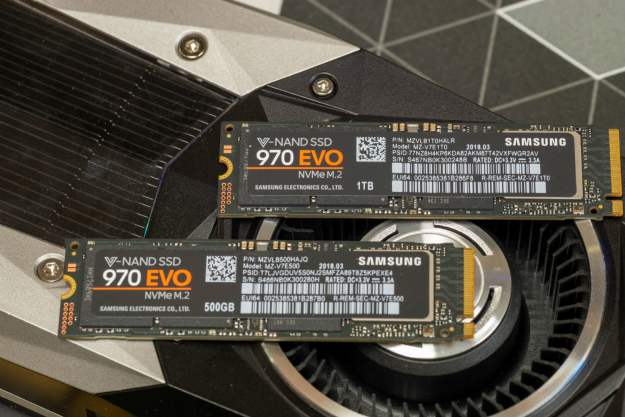SSDs may be much better than HDDs if all you want are faster read and write speeds, but a new study shows that they may not be nearly as eco-friendly as their slower, less impressive storage siblings.
According to the study, SSDs have a much larger environmental impact than HDDs. This just might be one of the last remaining reasons to choose an HDD over an SSD. But is it really as simple as that?

The eternal dilemma of SSD versus HDD is still ongoing. After all, while the best SSDs crush HDDs in terms of performance, HDDs continue to be cheaper. Now, a new study shows that the HDD market might have one more weapon in its arsenal.
Researchers from the University of Wisconsin-Madison and the University of British Columbia teamed up to explore the environmental impact of both SSDs and HDDs. According to their findings, SSDs are considerably worse for the environment, mostly because of the manufacturing process.
The study analyzed other study results in order to gauge the carbon footprint of SSDs. They found that the average SSD has a much higher storage embodied factor (SEF) than an HDD, averaging 0.16 for SSDs and just 0.02 for HDDs. SEF refers to the rate of CO2 emissions in relation to the total capacity of storage. This implies that SSDs are, indeed, worse for the environment.
The manufacturing process for SSDs certainly plays the biggest part in this. Making each part of an SSD, be it NAND chips, DRAM, or controllers, is expensive both in terms of electricity and material. Additionally, the researchers mention that semiconductor manufacturing mostly relies on coal and other mediums that have a strong impact on the environment.
On the other hand, the carbon footprint of an SSD throughout its lifetime should generally be less significant than that of an HDD. Tom’s Hardware did a quick deep dive to see how the two compare. In short, HDDs have double the power consumption of SSDs while they remain active, and they also consume more power while idle. Tom’s Hardware also spotted some inconsistencies in terms of the actual power usage, potentially giving HDDs an undeserved edge.
Seeing as SSDs are so much faster than HDDs, file transfer goes a lot quicker, which means that an SSD will spend more time in an idle state compared to an HDD. Tom’s Hardware calculated that an HDD might consume up to 15 times more power than an SSD in order to copy a 10GB file.
This is in stark contrast with the findings of the research team. The study states that if you want to stay as green as possible, you should pick a 1TB HDD over a 1TB SSD; the reasoning is that the HDD would only emit 99 Kg and 199 Kg of CO2 over five to 10 years, while the SSD will emit a massive 184 Kg and 369 Kg.
It seems that exploring this topic might require additional studies to fully confirm the superiority of HDDs, but this particular study makes it clear that they are, in fact, the greener option. This just might be the last saving grace for our good old hard drives. While they have historically been cheaper, with a better dollar-per-TB ratio than SSDs, that gap is swiftly closing. As an example, Wikibon claims that by 2026, SSDs will become cheaper than HDDs.
Unfortunately, the complex manufacturing process of an SSD is not down to individual consumers to solve. If you want to make sure you’re being environmentally friendly, you don’t necessarily need to ditch your SSD, though. It seems that once it was already made, it may be more eco-friendly during its lifetime than an average HDD.
Editors' Recommendations
- SteelSeries’ new mic is better than my $700 setup
- Samsung’s 2nd-generation SmartSSD can process data right on the drive
- Microsoft could finally kill HDD boot drives for good
- Micron’s new tiny 2TB SSD is bad news for laptop HDDs
- Intel’s Arc Alchemist GPUs could be in better shape than we expected





